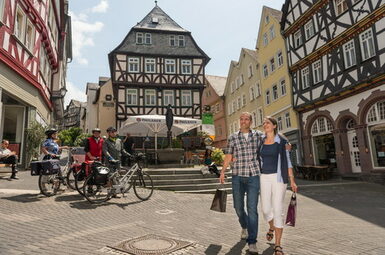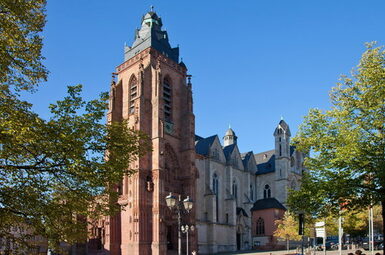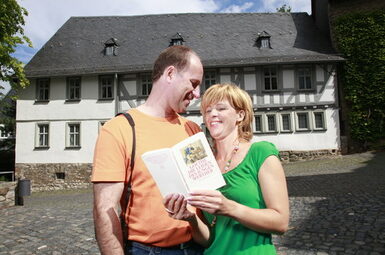Goethe in Wetzlar
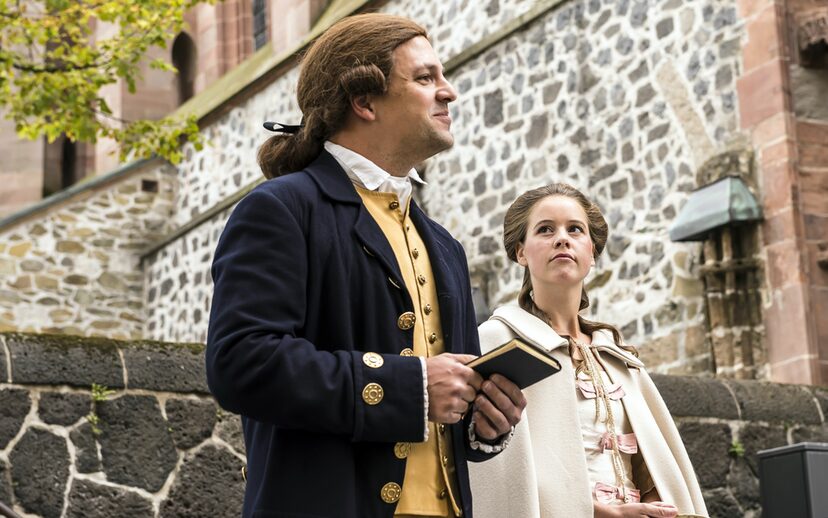
When Goethe arrived in Wetzlar on 10. Mai 1772 at the nicest time of the year, the town seemed to him not to be so inviting, regardless of its attractive position on the slopes of the river valley. As a comparison to other towns, which the young lawyer had previously experienced the elegant exhibition town of Leipzig, the extensive medieval stamped Strasbourg, the barock residence towns of Mannheim and Darmstadt must have given the impression of being, to the disadvantage of the antique, but narrow and with its sloping position, moreover for pedestrians, horse-drawn vehicles and stagecoaches, an equally uncomfotable imperial town.
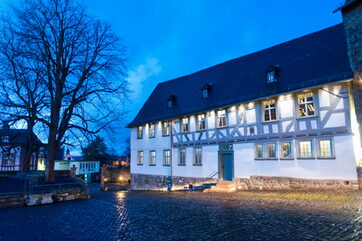
Although Wetzlar enjoyed being the german “Capital of Rights” with its location having the highest civil court in the old empire since 1689/90, it could only be classed a welcome travel destination, for the Frankfurts upper middle class persons son, with difficulty. Pushed from his father to complete legal training at the Supreme Court of the Holy Roman Empire in Wetzlar, Goethe had to leave a beloved group of friends in Darmstadt and once again adjust himself to a new dry legal course of studies, which he thought he had already conquered through his licentiated exams in Strasbourg in 1771.
Doubtlessly, Goethes opinion of Wetzlar was somewhat influenced by a young mans displeasure of his situation, who had to, once again, bow to his fathers wishes. Within surged a new natural feeling, which continually became distinctly more conscious to follow his own artistry and search for corresponding artistic forms of expression to increase artistic production and not to study the records of court cases and congealed procedural forms.
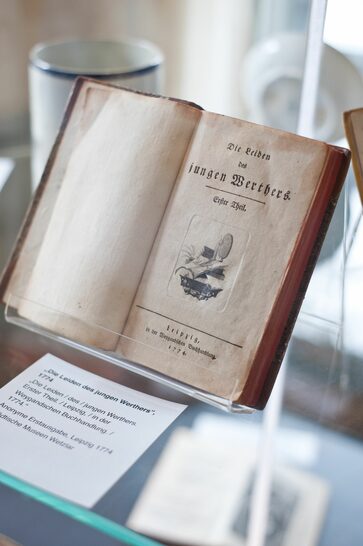
The internal tension, strengthened even more by the deep, but hopeless affection for Charlotte Buff, discharged Goethes first novel in 1774 “The suffering of young Werther”. It was hardly known of and yet through the thin veil of literate alienation of the town of Wetzlar and tragic destiny of a young person who gleamed in it, the flow of travellers to the scenes of the “youthful suffering” began. It has not ebbed away since.
A lot has surprisingly remained from that time until now in Wetzlar, affectionately maintained and kept in its original form as far as possible, as Goethe experienced during one bitter sweet Wetzlar summer.

